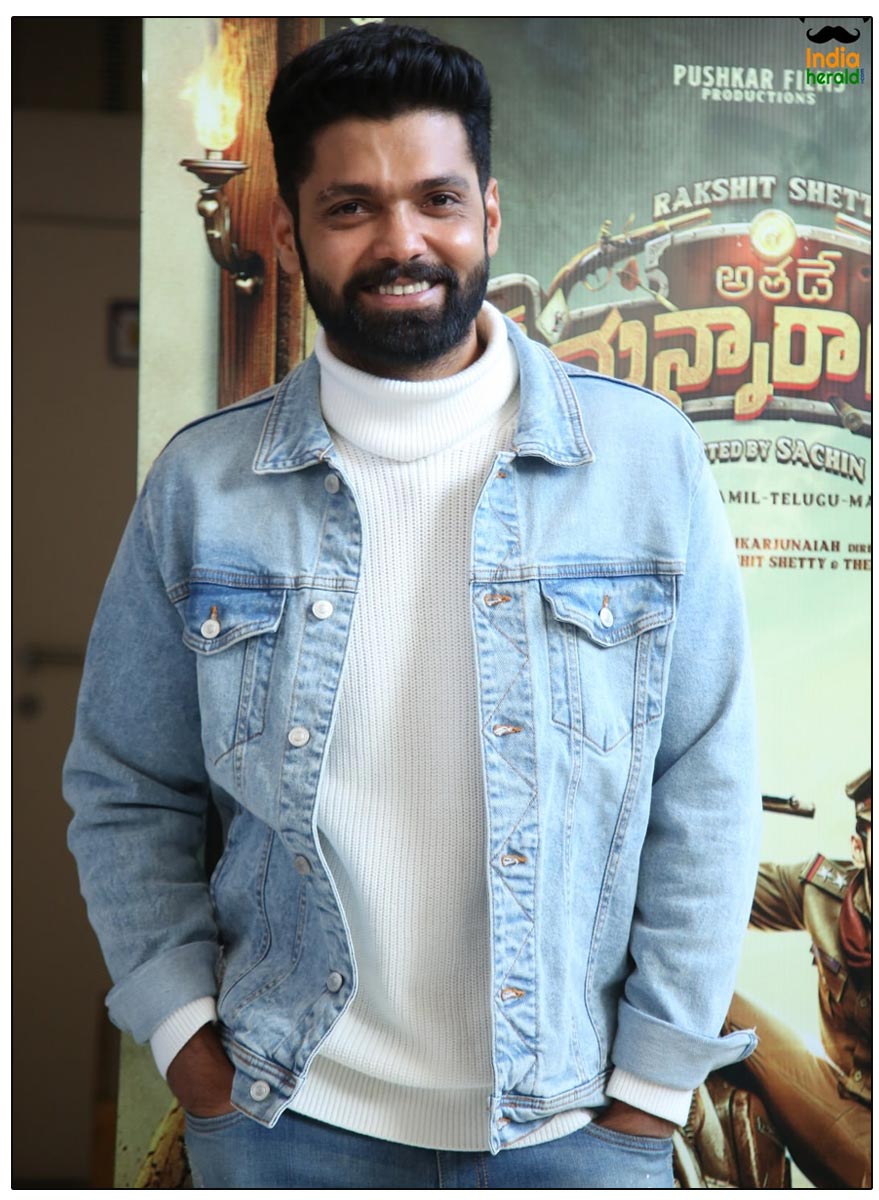Rakshit Shetty Applies For Anticipatory Bail Over Copyright Infringement
Rakshit Shetty seeks anticipatory bail

Rakshit Shetty applies for anticipatory bail over copyright infringement. Rakshit Shetty Seeks Anticipatory Bail Amidst Copyright Infringement Case Over "Bachelor Party".
Kannada actor-director-producer Rakshit Shetty has reportedly applied for anticipatory bail following a copyright infringement case filed against him by the Bengaluru police. The case stems from allegations that his production house, Paramvah Studios, used songs from the films "Nyaya Ellide" (1982) and "Gaalimaathu" (1981) without permission in his film "Bachelor Party," released on Amazon Prime Video in March 2023.
An FIR was registered based on a complaint filed by Naveen Kumar of MRT Music Company. The complaint alleges that while Rakshit and MRT Music discussed acquiring the rights to the songs in January 2023, no agreement was reached. Despite this, Rakshit allegedly proceeded to use the songs in his film.
The Bengaluru police are currently investigating the matter and have issued a notice to Rakshit, seeking his response. Rakshit is scheduled to appear in the Bangalore Sessions Court on July 24th for the anticipatory bail hearing.
In response to the allegations, Paramvah Studios released an open letter on social media, clarifying their position. They included clips from "Bachelor Party" to demonstrate the limited use of the songs, stating that one song was sung by a schoolgirl in a classroom scene, while the other played briefly on a TV in another scene.
The studio admitted to approaching MRT Music for rights acquisition but claimed that the quoted price was exorbitant and non-negotiable. They questioned the validity of the copyright infringement claim, asking "Is this really copyright infringement?" and highlighting the lack of clear guidelines for handling such situations.
Paramvah Studios has declared their intention to fight the case in court, not just for their own benefit, but for all filmmakers who may face similar challenges. They expressed their gratitude for the support they have received and vowed to navigate this issue with determination.
This case raises important questions about fair use and copyright laws in the Indian film industry, particularly when it comes to using older music in contemporary films. It also highlights the need for clear guidelines and a more nuanced approach to copyright disputes involving music usage.




 What Andhra Pradesh And Telangana Got In Union Budget
What Andhra Pradesh And Telangana Got In Union Budget Are These NBK 109 Highlights?
Are These NBK 109 Highlights?